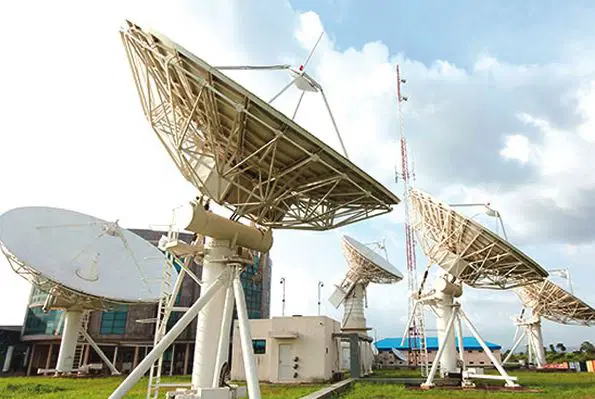The pandemic-era promise of remote work ushered in a new wave of opportunity for Nigerian professionals. Developers, designers, and customer support agents could now earn foreign income from global companies—without leaving home. But persistent network instability threatens to unravel those gains.
A growing digital workforce, built on shaky infrastructure
Nigeria’s broadband subscriptions reached nearly 99 million by early 2025, up from just under 75 million five years ago. Mobile data usage has grown sharply, yet broadband penetration remains around 45%—well short of the government’s 70% target. Urban areas have up to 40% broadband coverage, while rural communities often fall below 10%.
At the same time, Nigeria has become a major exporter of remote talent. From fintech engineers and virtual assistants to designers and content moderators, thousands work remotely for firms based in Europe, North America, and Asia. Yet according to surveys, over 80% of Nigerian remote workers report that internet disruptions regularly impact their productivity and reliability.
The routine of internet outages
Network failures in Nigeria are no longer isolated events. In March 2024, a major undersea cable cut disrupted connectivity across West Africa, including Nigeria, for several days. Locally, fibre cuts, vandalism, and energy instability continue to cause frequent service outages.
For remote workers, the consequences are not only technical—they’re professional. A missed Zoom pitch or failed file upload can cost a contract. Delays in client deliverables can ruin months of trust-building. Many professionals have been forced to invest in expensive backup options—mobile hotspots, satellite services, or power generators—just to stay competitive.
But these solutions aren’t affordable for all. Workers in rural or underserved areas are often unable to access consistent internet, let alone pay for multiple subscriptions and devices. The result is a widening gap between those who can stay online and those who cannot.
Weak oversight, slow reform
Nigeria’s National Broadband Plan (2020–2025) promised a minimum of 25 Mbps in urban areas and 10 Mbps in rural zones by this year. Progress has been uneven. The country’s telecom regulator, the Nigerian Communications Commission (NCC), requires service providers to notify users of outages—but enforcement is inconsistent. No formal compensation structures exist for individual users or small businesses affected by downtime.
The Universal Service Provision Fund (USPF), created to expand connectivity in underserved areas, has been criticized for underperformance. Its disbursement strategy lacks transparency, and many of its initiatives have failed to scale.
A missed global opportunity
Nigeria’s young population and strong tech talent pool give it an edge in the global remote economy. Already, many foreign companies are turning to Africa for software engineering, content moderation, and customer support. With stable infrastructure, Nigeria could lead this shift.
But without reliable internet, these opportunities remain out of reach for millions. The country risks stalling the momentum built during the pandemic years and losing credibility with international clients who expect consistency.
A path forward
To protect and grow Nigeria’s remote work economy, both government and industry need to act.
- Invest in resilient infrastructure: More fibre lines, improved last-mile coverage, and backup routes for undersea cables are essential.
- Hold providers accountable: Telcos and ISPs must face regulatory consequences for extended outages and be mandated to meet minimum service levels.
- Support equitable access: Satellite broadband pilots and shared community hubs must be scaled, especially in underserved areas.
- Fix the power problem: Without stable electricity, even the best internet will falter.
Working remotely should not mean working under constant threat of disconnection. For Nigeria’s remote workforce to remain globally relevant, staying online must become as dependable as their talent.











